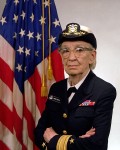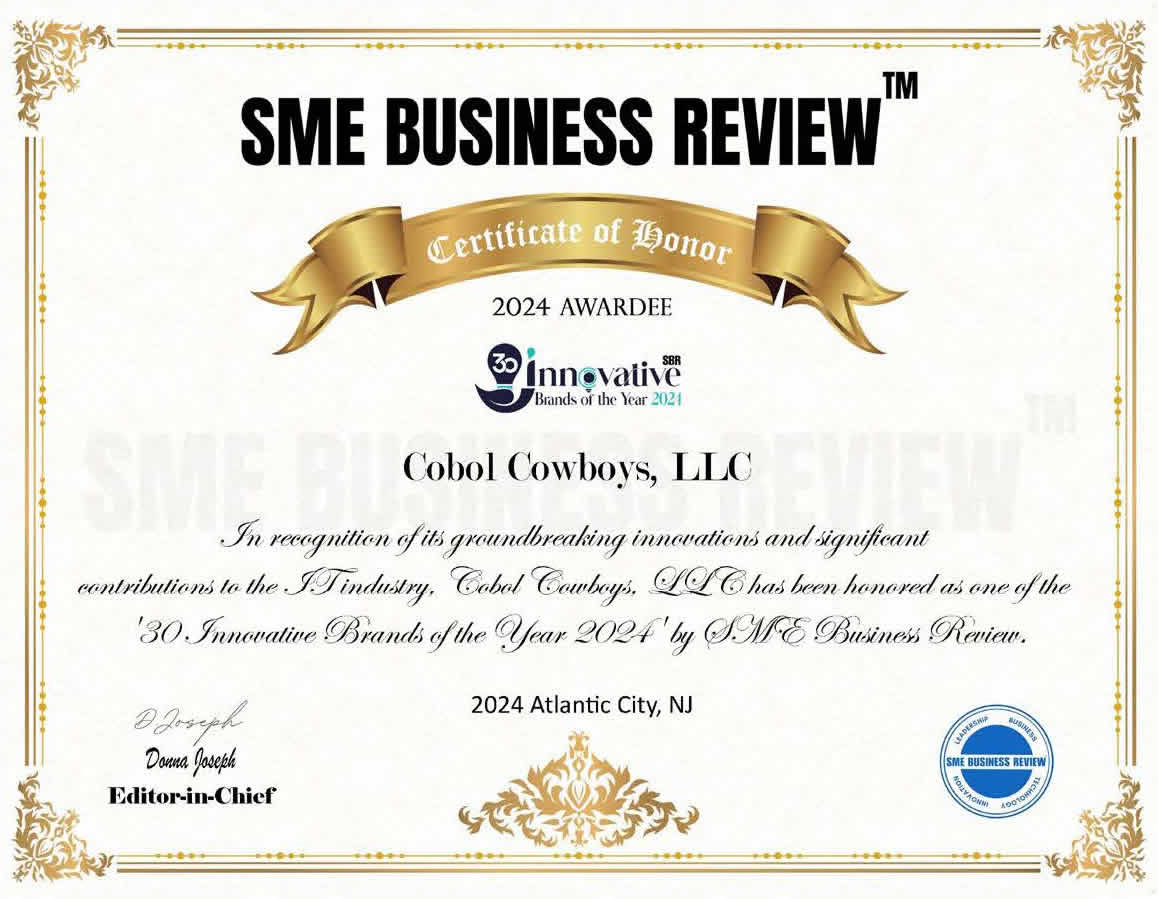NEW TO COBOL?
Here’s some Information…. (select on red questions for more information)
What is COBOL?
The word COBOL stands for Common Business Oriented Language. COBOL has been around since the late 1950’s and has been instrumental in developing business software around the world. COBOL is a powerful high-level “English based” language where a single verb generates multiple computer instructions; and is known as a self-documenting language. Most financial transactions today are being processed via COBOL systems.
How did COBOL begin?
 Grace Murray Hopper (December 9, 1906 – January 1, 1992) was an American computer scientist and United States Navy rear admiral. A pioneer in the field, she was one of the first programmers of the Harvard Mark I computer, and invented the first compiler for a computer programming language. She popularized the idea of machine-independent programming languages, which led to the development of COBOL, one of the first modern programming languages. She is credited with popularizing the term ” debugging” for fixing computer glitches (inspired by an actual moth removed from the computer). Owing to the breadth of her accomplishments and her naval rank, she is sometimes referred to as “Amazing Grace”. The U.S. Navy destroyer USS Hopper (DDG-70) is named for her, as was the Cray XE6 “Hopper” supercomputer.
Grace Murray Hopper (December 9, 1906 – January 1, 1992) was an American computer scientist and United States Navy rear admiral. A pioneer in the field, she was one of the first programmers of the Harvard Mark I computer, and invented the first compiler for a computer programming language. She popularized the idea of machine-independent programming languages, which led to the development of COBOL, one of the first modern programming languages. She is credited with popularizing the term ” debugging” for fixing computer glitches (inspired by an actual moth removed from the computer). Owing to the breadth of her accomplishments and her naval rank, she is sometimes referred to as “Amazing Grace”. The U.S. Navy destroyer USS Hopper (DDG-70) is named for her, as was the Cray XE6 “Hopper” supercomputer.
In the spring of 1959, a two-day conference known as the Conference on Data Systems Languages ( CODASYL) brought together computer experts from industry and government. Hopper served as the technical consultant to the committee, and many of her former employees served on the short-term committee that defined the new language COBOL (an acronym for COmmon Business- Oriented Language). The new language extended Hopper’s FLOW-MATIC language with some ideas from the IBM equivalent, COMTRAN. Hopper’s belief that programs should be written in a language that was close to English (rather than in machine code or in languages close to machine code, such as assembly languages) was captured in the new business language, and COBOL went on to be the most ubiquitous business language to date.
With the introduction of PC’s in 1980’s, it has been said that most mainframes would be replaced by PC’s and COBOL would become obsolete. What has really happened since then in the marketplace?
Mainframes have become “super servers” running COBOL and Java language programs singularly or concurrently; and COBOL still has remained a dominant role in business more than 40 years later — and is still going strong today worldwide. Furthermore, some companies are moving their COBOL systems to the “Cloud” as COBOL continues to be a robust and time-proven commodity.
Why is there concern that there is becoming a shortage of COBOL programmers?
Several reasons can be attributed to the shortage of COBOL programmers — promotions, retirements, career changes, colleges no longer offering COBOL, students wanting to be associated with latest technology, etc. However, some colleges are beginning to offer COBOL training again and non-COBOL programmers are learning COBOL for career advancement within their companies. This shortage of COBOL programmers is one of the driving reasons for Cobol Cowboys – we supplement IT staffs with professional consultants to assist in the continued use of proven COBOL systems.
Why are large companies reluctant to replace legacy COBOL systems?
Sheer cost and effort to replace COBOL is not an acceptable return on investment (ROI) for most companies. But other reasons include negative impact on customers with failed deployments of replacement software, concerns for failure to implement existing business rules successfully within their replacement software, and possible long-lasting damage to company’s image caused by deployment failures of replacement software.



